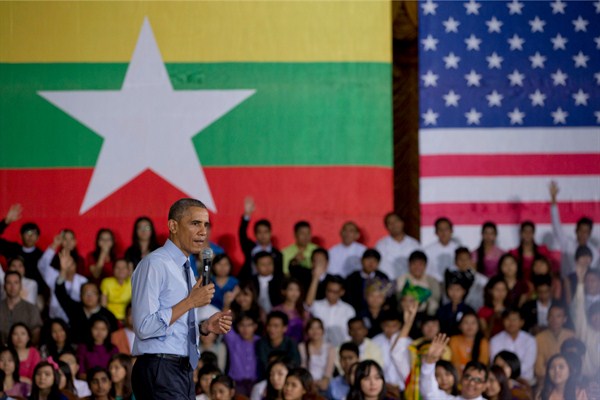Over the past year, the Obama administration has rapidly repaired diplomatic and economic ties with Cuba. Last month, in the latest of many agreements, Washington and Havana signed a deal restoring commercial flights between the two countries for the first time in more than 50 years, just as the White House approved construction of the first U.S. factory in Cuba since the 1960 embargo. The outreach is an attempt, according to President Barack Obama’s deputy national security adviser Ben Rhodes, to ensure that the U.S.-Cuba rapprochement is nearly irreversible by the time Obama leaves office. To further cement ties, Obama will visit Cuba later this month—making him the first U.S. president to do so since Calvin Coolidge.
White House officials have started mentioning a more specific template for Obama’s Cuban outreach and for how Cuba might open up its economy and political system: Myanmar. The Obama administration sees Myanmar as a success story, and one in which it played a central role in pushing the generals who ruled the country toward elections. Now, it apparently sees U.S.-Myanmar relations as a model, as well—an example of U.S. diplomacy and soft power at its finest.
Since the first days of Obama’s presidency, administration officials placed a priority on restoring closer U.S. ties with Myanmar. At the time, Myanmar was isolated from the U.S. and most other democracies by decades of junta rule, destructive economic policies, and sanctions imposed after massive human rights abuses. The Obama administration believed that sanctions had failed to change the course of Myanmar’s politics—and that America’s inattention to the Southeast Asian country was making Myanmar a virtual Chinese client state. To reverse U.S. policy, over the past seven years, the White House relaxed sanctions on Myanmar, appointed ambassadorial level representation, launched new aid programs, and even considered restoring military ties down the road.

